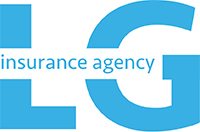Navigating the myriad of details associated with the purchase of a new home is intimidating and requires the expertise of a professional, which is why potential buyers rely on their Realtor or real estate agent to guide them through the process. When making any significant purchase, it is also important to understand the risks and know which steps to take to protect that financial investment. Real estate agents play an important role in advising their clients about more than just home values and desirable neighborhoods- they also should cover flood risk and flood insurance- important topics that should be considered early in the home buying process.
New Jersey has one of the highest levels of property damage due to flooding in the country. In fact, there are currently 352,000 people in New Jersey that are at risk for coastal flooding alone, and as the climate continues to react to increased temperatures with rising sea levels, that number is estimated to rise by another 110,000 people by 2050. New Jersey’s variety of rivers and other water sources mean that coastal residents aren’t the only ones at risk. Somerset county, while not on the coast, is the highest flood risk county in New Jersey thanks to frequent river flooding. No matter where in the Garden State a property is located, there is some risk for flooding.
Having a good working knowledge of flood zones, and the ability to understand flood maps is not typical of a layperson. Essentially, a Flood Zone is a geographical area that is rated to reflect the severity or type of flooding in that area. Knowing what zone a property is in determines, to an extent, the category of risk. Real estate agents can build relationships with flood insurance experts who have a deeper understanding of this information, and work with them to assess potential flood insurance costs for a particular property before the potential buyer moves too far forward with an investment. It’s important to consider a variety of purchase options, as different areas have different risks associated with them. Many potential homebuyers are under the impression that a homeowners insurance policy will protect them from flood damage- and while that may be true for a burst pipe that floods your basement, it won’t apply to flood damage caused by storm surge, or other catastrophic weather events.
It’s vital to consider that anywhere it can rain, it can flood. Damages from flooding affect thousands of homes each year, and for some areas where flooding risks are higher, flood insurance is necessary in order to obtain a mortgage. Even if your client is choosing to buy a home where flood insurance isn’t required, it is still a good option- no one wants to be stuck paying for thousands of dollars in damages out of pocket after assuming that they were insulated from potential flood damage.
What qualifies as a “flood” for an insurance claim? The National Flood Insurance Program defines a true flood as “an excess of water on land that is normally dry, affecting two or more acres of land or two or more properties.” Given the frequency of flooding and potential flood damages in New Jersey, along with mudflow and erosion as potential qualifying “floods” (caused by something like a post-wildfire river of mud, or an extensive heavy rain) flood insurance is a good investment.
Having access to and knowledge about flood risk data is critical to both current property owners and potential buyers. By letting the potential homeowner know the risks, real estate agents can build trust with their client and help them to make an informed decision about which properties to invest in. It’s also important to note that there are varying rates of coverage for properties based on a variety of factors- for homes in high-risk areas, lenders that are federally regulated or insured require that flood insurance be purchased before the closing of the loan. However, for areas that are not considered high risk, flood insurance can be more affordable than potential buyers might think. Preferred Risk policies can have very low premiums while still protecting homeowners from draining savings or other accounts to pay for damage. It’s important to remember that floodwaters don’t stop at a line on a map, and that although helpful, flood maps and zones are a tool for determining potential risk. According to data available through the National Flood Insurance Program, more than 20% of flood damage claims come from people outside of mapped high-risk areas.
Flood mapping is also being updated in the state of New Jersey even today. According to a wide-ranging scientific study released in early July, 385,438 properties currently face a 1% annual chance of flooding. Private flood insurance offers options that can be more comprehensive than the basic policies available through FEMA. Private policies can be stand-alone, meaning they cover the entirety of the flood policy, or they can be “excess” meaning they provide additional coverage on top of the base policy.
This is yet another reason it is important for real estate agents to seek the advice of an insurance expert, who can provide your potential buyers with a complete range of options and protections to insure their investment from the looming risk of flood damages. Know your risks for your clients, and LG Insurance can assist you with flood evaluations and homeowner’s quotes prior to going under contract.


